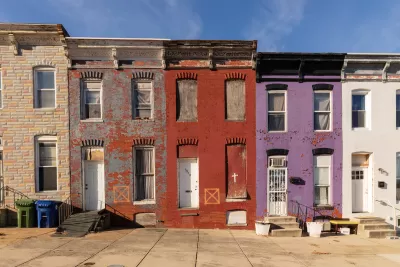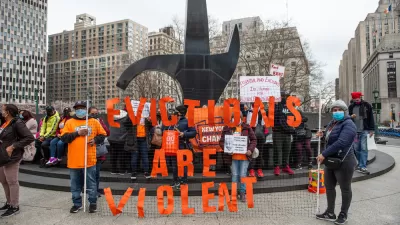A wave of new legislation targets people who reside illegally in properties they don’t own.

States including New York and Georgia are cracking down on squatters, reports Mary Salmonsen in Smart Cities Dive.
Until recently, people living in a unit illegally for over 30 days in New York State were considered tenants, forcing the owner into a judicial eviction process. “On April 22, New York Gov. Kathy Hochul signed the 2025 state budget, which changed the state’s property law to say that squatters are not considered tenants on any timeframe, effective immediately.”
Other states with new anti-squatting legislation include Florida, where a new bill criminalizes squatting, and Alabama, where new legislation creates a process for removal. “United States Rep. Dan Meuser, R-Pa., also introduced a bill in the U.S. House on April 10 that, if passed, would define trespassing or squatting as grounds for deportation for any non-U.S. citizen.”
As Salmonsen explains, “The laws colloquially referred to as ‘squatters’ rights’ can also encompass adverse possession, in which a person who does not own a property may acquire title to it under certain circumstances.” According to M. Denzell Moton, attorney and owner of Moton Legal Group in Atlanta, the new laws are not expected to impact adverse possession clauses — which often deal with years or decades of residency — but will have a major impact on short-term squatters.
FULL STORY: States see wave of squatting-related legislation

Study: Maui’s Plan to Convert Vacation Rentals to Long-Term Housing Could Cause Nearly $1 Billion Economic Loss
The plan would reduce visitor accommodation by 25,% resulting in 1,900 jobs lost.

North Texas Transit Leaders Tout Benefits of TOD for Growing Region
At a summit focused on transit-oriented development, policymakers discussed how North Texas’ expanded light rail system can serve as a tool for economic growth.

Why Should We Subsidize Public Transportation?
Many public transit agencies face financial stress due to rising costs, declining fare revenue, and declining subsidies. Transit advocates must provide a strong business case for increasing public transit funding.

How to Make US Trains Faster
Changes to boarding platforms and a switch to electric trains could improve U.S. passenger rail service without the added cost of high-speed rail.

Columbia’s Revitalized ‘Loop’ Is a Hub for Local Entrepreneurs
A focus on small businesses is helping a commercial corridor in Columbia, Missouri thrive.

Invasive Insect Threatens Minnesota’s Ash Forests
The Emerald Ash Borer is a rapidly spreading invasive pest threatening Minnesota’s ash trees, and homeowners are encouraged to plant diverse replacement species, avoid moving ash firewood, and monitor for signs of infestation.
Urban Design for Planners 1: Software Tools
This six-course series explores essential urban design concepts using open source software and equips planners with the tools they need to participate fully in the urban design process.
Planning for Universal Design
Learn the tools for implementing Universal Design in planning regulations.
City of Santa Clarita
Ascent Environmental
Institute for Housing and Urban Development Studies (IHS)
City of Grandview
Harvard GSD Executive Education
Toledo-Lucas County Plan Commissions
Salt Lake City
NYU Wagner Graduate School of Public Service





























